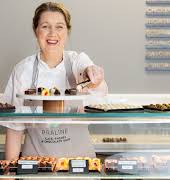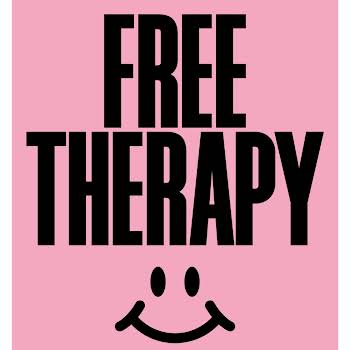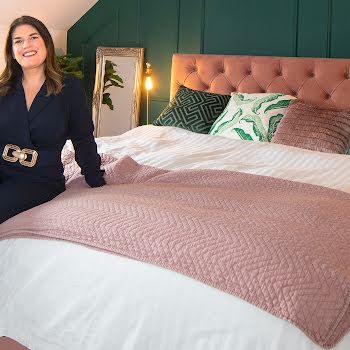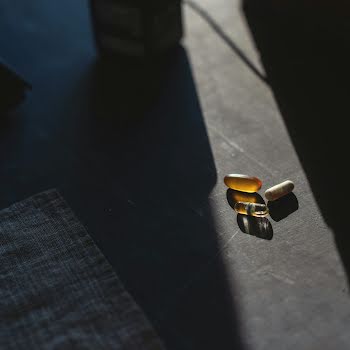
7 common misconceptions about your teeth (from a Dental Hygienist)
By Jennifer McShane
13th Apr 2021
13th Apr 2021
Photo: Pexels
A new survey by the Wrigley Oral Healthcare Programme ‘Mind Your Mouth!' commissioned by Mars Wrigley has revealed some striking aspects of how Irish people take care of their oral health.
To mark World Oral Health Day, we spoke to Dr Catherine Waldron, Postdoctoral Oral Health Researcher, about common misconceptions when it comes to your teeth, as well as what you can do to prevent an emergency trip to the dentist.
Misconception 1: The dentist can transform your oral health
While the dentists and oral hygienists can do a great deal, Dr Waldron says that, actually, we can do most of the transformative work ourselves – before we even get into the chair.
“As dental hygienists, we are focused on maintaining health and preventing diseases. So it’s not just about preventing gum disease, but also about advising people how their diet impacts their teeth, preventing those cavities or holes and teeth that the dentist would ultimately have to repair. So, the focus is on prevention and maintaining teeth and gum health and 90% of that you can do at home with your brushing routine. Prevention is better than cure.”
“We want to empower people to manage their own oral health. And there are two elements to that: the first is about effectively cleaning their teeth, the technique of tooth brushing and cleaning in between the teeth, but the second and almost harder than that, is the actual habit, developing good oral hygiene habits.
“This starts with the importance of teaching children very early, the importance of tooth brushing, and going back to the day-to-day, to think about the foods that the reason and the impact it has on their teeth, and the earlier we can get those messages across, the more likely the good oral hygiene routine just becomes automatic, so we don’t need to be constantly nagging people about it!”
Misconception 2: Stress won’t impact your teeth
During Covid, this is especially untrue; the survey revealed that 30% of people are grinding and clenching their teeth – this is amplified during the pandemic, but generally happens as a result of stress.
“When people are more stressed, we tend to take that out in our teeth, particularly at nighttime, when we’re not even aware that we’re doing it. You might have a partner who might say to you, ‘you were grinding your teeth last night’, or, all you may be aware of is that you wake up in the morning with tension in the muscles on the side of your face or suddenly, you realise you’ve got a broken tooth. And actually, you know, those sorts of that, that damage that we can cause by grinding our teeth is substantial.”
“There isn’t much we can do to prevent grinding, but what we can do is be conscious that we’re doing it,” she explains.
A key thing to remember is that stress levels impact every part of your body – including the health of your teeth and gums.
When our immune system is lowered and we're stressed and rundown, then our ability to fight the day-to-day plaque and bacteria that builds in our mouth is reduced, so we may notice our gums becoming more inflamed because of that. This is all the more reasons to be more diligent with your oral hygiene, at times of stress – really keep the cleaning going.
Misconception 3: An electric toothbrush should be used over a manual brush
Dr Waldron says that both brushes require different techniques and that it comes down to personal preference, over one being a ‘better’ cleaning tool than the other.
“It’s very much a personal choice. And looking at the evidence, there is really only a marginal benefit to using one over the other, and that’s looking at clinical statistics for a particular type of electric toothbrush – the Oscillating-Rotating (O-R) Technology (Oral-B) Toothbrush has the most evidence behind it.
“Yes, if you find them good, I’m absolutely happy for people to use [an electric brush]. It is important to say that the technique that you use when you’re using an electric toothbrush is different from the technique you use when you’re using a manual one. There is a bit of skill to using one or other of the toothbrushes, so to ask your dental hygienist to spend the time with you making sure that you’ve got the technique correct is what’s most important.”
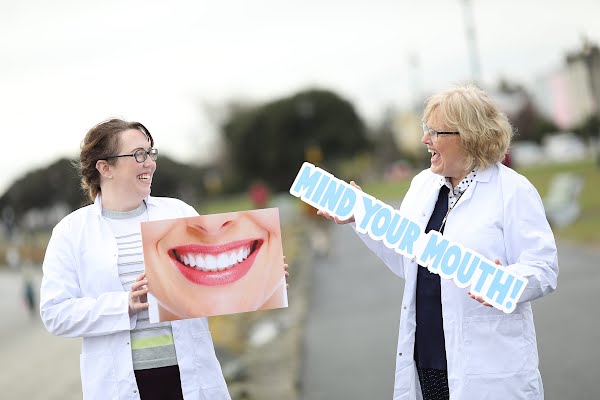
Misconception 4: There will always be signs of teeth and gum issues
The bottom line is, she says, that unfortunately, the problems that can be occurring in your mouth can be silent.
“Gum disease is not one that gives you pain until way down the road but not to be waiting for for a toothache or an awareness of a problem in your mouth before you go. Because gum problems tend to creep up on you. And as we get older, those problems tend to creep up a little quicker. I’m always happy when people arrive in the context of the appearance of their teeth, but the reality is, there could be other things going on that we need to be assessing on a regular basis.”
“Oral cancer is the sixth most common cancer and just by very simply looking at all of the soft tissues of the mouth, your dental hygenist can spot some of those warning signs. We can’t diagnose it, but we can certainly see indicators. Any spot or ulcer that doesn’t heal within two weeks, should be assessed and biopsied to make sure that it isn’t something we’d be concerned about.
“And then we do a very detailed assessment of how well attached the gum is to the teeth in your mouth – that’s not something that an individual might be aware of, because there’s no toothache with that, the giveaway sign is bleeding. So if a person is suddenly aware of their gums bleeding, they should immediately start spending more time cleaning their own teeth and if after a week or 10 days that bleeding is not subsiding, then they definitely should be organising a trip to have it checked.”
The key thing to remember is that you're in charge of the situation. We can take away the hard deposits or the plaque that builds up, but it's your day to day cleaning that is really the key to success.
Misconception 5: Chewing gum is bad for your teeth
The right kind of gum, will actually help your teeth and gums.
“Wrigley’s are the company that has supported us to carry out the research and there are actually many benefits of chewing sugar-free gum. Our saliva is like a natural mouthwash. And chewing sugar-free gum actually washes away a lot of the plaque bacteria that builds up in our mouth. So anything we can do to increase our saliva flow benefits our mouths, it cancels out all of the sugary acids that are formed when we’re eating, so by chewing this gum, you’re literally stimulating the saliva flow in your mouth.
“It’s increasing the saliva flow and washes away the sugary foods that you’ve just eaten. That’s something for everybody but particularly good for older people. As we get older, our saliva flow naturally reduces people’s start to suffer from dry mouth. So anything we can do to say to stimulate saliva flow, it’s really useful.”
Misconception 6: Your oral health is separate to your general health
One of the biggest misconceptions, Dr Waldron says is the impact your oral health has on your general health.
“So for example, if your oral health is not good, you’re less likely to be able to control your diabetes. General heart conditions are also aggravated by poor oral health. So it’s to really emphasise, the impact your oral health will have on the rest of your health. It all comes back to a healthy mouth, a healthy body – we spend our lives trying to make the connection between the two for everyone!”
“The connection between smoking and oral health is a big one. People become aware of is the staining that smoking causes But actually, it’s the impact of the physical act of smoking on the soft tissues of your mouth and on your ability to fight plaque and bacteria.
So a person who is a smoker has a much harder job maintaining their oral health, and I’m not talking about keeping their teeth nice and clean, I’m talking about maintaining the gums and the supporting tissues around them. They’re much more likely to have more severe forms of gum disease than those who don’t smoke.”
Misconception 7: Mouthwash should be used straight after brushing
“There are different types of mouthwashes that are used for different purposes, but I would always suggest that you use your mouthwash at a different time to your toothpaste, because all you’re doing is washing away the great things the toothpaste is doing.”
“There’s a couple of reasons people like to use mouthwash is one is to freshen in their breath. I would be recommending that you’d be brushing morning and evening and maybe using mouthwash midday after your lunch – not at the same time or straight after brushing.”
“And again, there are mouthwashes that are recommended for different reasons, so you might actually even need a prescription and perhaps these would be for people who are more susceptible to tooth decay. So maybe patients with maybe physical or intellectual disabilities that can’t manage their own tooth brushing and just need more support to help prevent them from getting tooth decay.”








